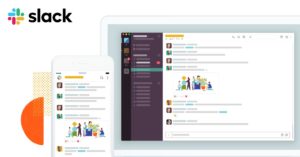Bonus Episode: How to Build a Self-Driving Car with Ian Williams
Podcast: Play in new window | Download
Subscribe: RSS

Autonomous vehicle engineering is a huge challenge and requires the integration of many different technologies. A self-driving car needs data from multiple sensors, ML models to process that data, engineering to couple software and mechanical systems, and much more.
Ian Williams is a Senior Staff Software Engineer at Cruise, and before that worked at Google, Lyft, and eBay. He joins the show to talk about the diverse engineering challenges and strategies associated with building self-driving cars.
This episode is hosted by Tyson Kunovsky. Tyson is the co-founder and CEO of AutoCloud, an infrastructure as code platform. He is originally from South Africa, and has a background in software engineering and cloud development. When he’s not busy designing new GitOps workflows, he enjoys skiing, riding motorcycles, and reading sci-fi books. Check the show notes for more information on Tyson’s work, and where to find him.
Sponsorship inquiries: sponsor@softwareengineeringdaily.com
Sponsors
52% of men over 40 experience some form of ED between the ages of 40 and 70. But it’s always been a taboo topic. Thankfully, Hims is changing that by providing affordable access to ED treatment, all online.
Start your free online visit today at https://hims.com/sedaily for your personalized ED treatment options. Prescriptions require an online consultation with a healthcare provider who will determine if appropriate. Restrictions apply. See website for details and important safety information. Subscription required. Price varies based on product and subscription plan.
As a listener of Software Engineering Daily you understand the impact of generative AI. On the podcast, we’ve covered many exciting aspects of GenAI technologies, as well as the new vulnerabilities and risks they bring.
HackerOne’s AI red teaming addresses the novel challenges of AI safety and security for businesses launching new AI deployments.
Their approach involves stress-testing AI models and deployments to make sure they can’t be tricked into providing information beyond their intended use, and that security flaws can’t be exploited to access confidential data or systems.
Within the HackerOne community, over 750 active hackers specialize in prompt hacking and other AI security and safety testing.
In a single recent engagement, a team of 18 HackerOne hackers quickly identified 26 valid findings within the initial 24 hours and accumulated over 100 valid findings in the two-week engagement.
HackerOne offers strategic flexibility, rapid deployment, and a hybrid talent strategy. Learn more at Hackerone.com/ai.
Building event-driven applications just got significantly easier with Hookdeck, your go-to event gateway for managing webhooks and asynchronous messaging between first and third-party APIs and services.
With Hookdeck you can receive, transform, and filter webhooks from third-party services and throttle the delivery to your own infrastructure.
You can securely send webhooks, triggered from your own platform, to your customer’s endpoints.
Ingest events at scale from IoT devices or SDKs, and use Hookdeck as your asynchronous API infrastructure.
No matter your use case, Hookdeck is built to support your full software development life cycle. Use the Hookdeck CLI to receive events on your localhost. Automate dev, staging, and prod environment creation using the Hookdeck API or Terraform Provider. And, gain full visibility of all events using the Hookdeck logging and metrics in the Hookdeck dashboard.
Start building reliable and scalable event-driven applications today. Visit hookdeck.com/sedaily and sign up to get a three month trial of the Hookdeck Team plan for free.























